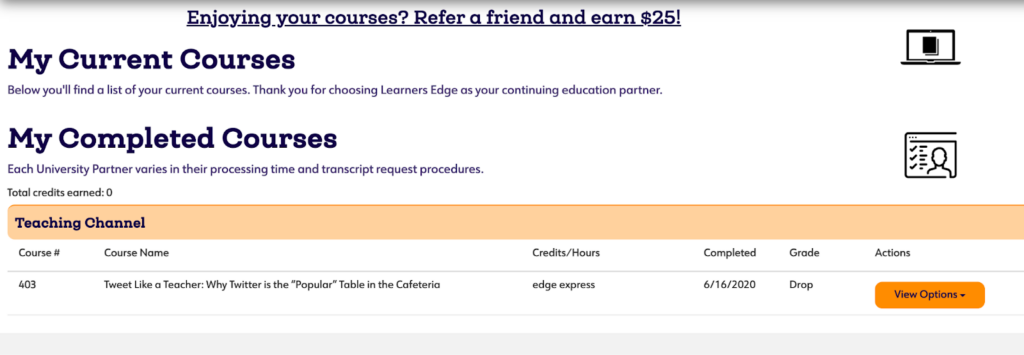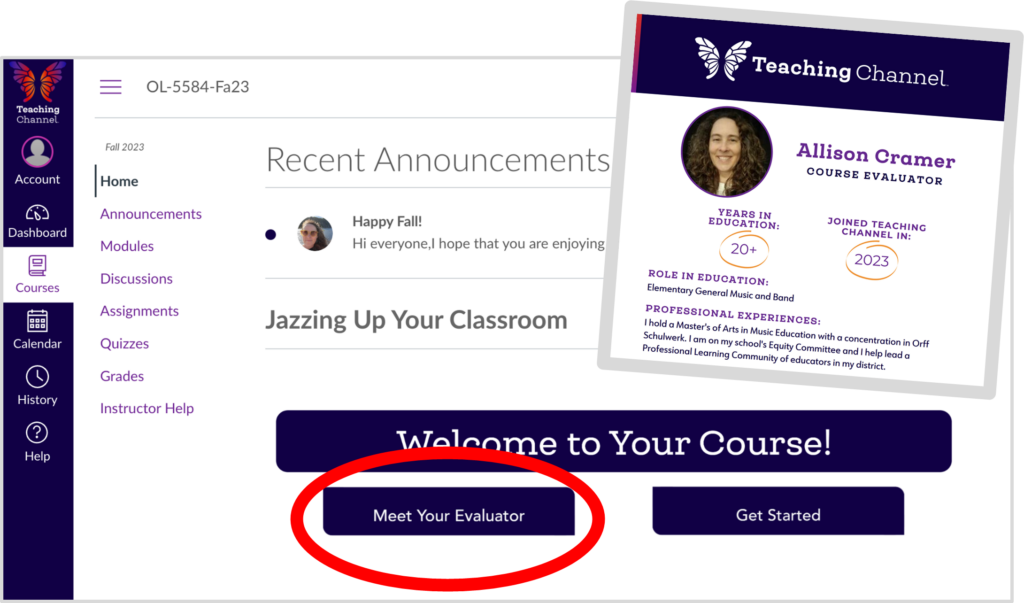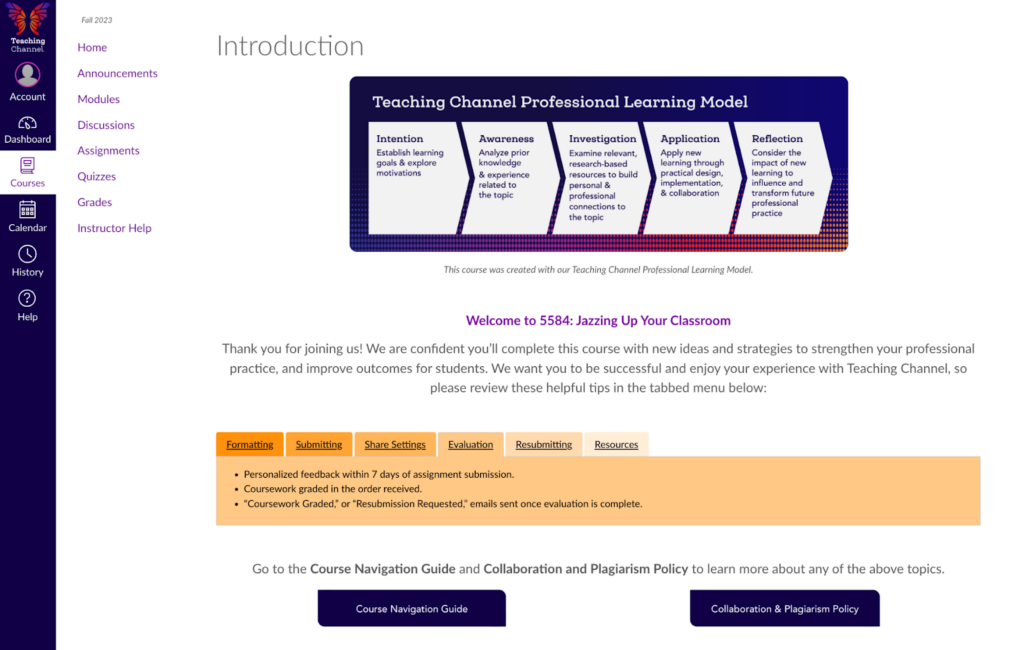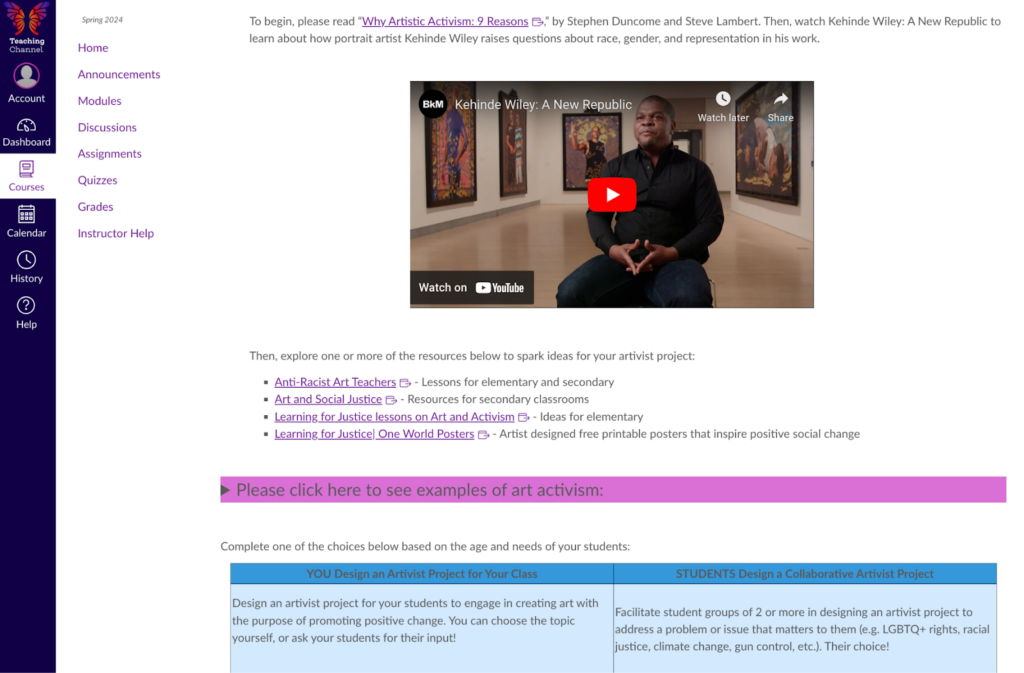Courses for Every Learning Style and Goal
Our team has been in your shoes and knows first-hand the skills you need to excel as a teacher. With courses for all grades and subjects, we have the learning content, teaching strategies and classroom tools you need, at the price and pace you want.
Chart Your Courses
Whether your goal is to renew your teaching license, advance your salary or deepen your expertise, we have a wide range of options for you. The journey is yours to define.
- Continuing Education
- Course Bundles
- Hybrid Learning Courses
- Flex Credits
- Fast Track
- Hours Only PD
- Book Study
Continuing Education
Graduate-Level Continuing Education Courses
Self-paced online courses are a teacher favorite.
- Ideal for those seeking salary advancement and/or license renewal and recertification
- Variety of topics within our course catalog of 300+ semester-based 1, 2, and 3-credit courses
- Improve your professional practice with flexible, asynchronous course content allowing you to learn when and where you choose
- Coursework approved by our associated universities includes curated resources, focused activities for strategy application, and reflection
- Ongoing, personalized feedback provided by master-level course evaluators
- Earn a transcripted letter grade from your chosen regionally accredited university partner
Course Bundles
Course Bundles
Want to hand-select the courses you need most while saving money? No problem. Pick your perfect course bundle from a variety of options.
- Ideal for those seeking salary advancement and/or license renewal and recertification
- Self-paced, online, graduate-level, continuing education courses packaged for savings
- 3-, 5-, or 10-course bundle options to lock in amazing bundle discounts
- Variety of topics within our course catalog of 140+ semester-based 3-credit courses
- Flexible timelines for course selection over twelve months
- Pay-as-You-Learn offers payment schedules that fit your budget
- Seeking an advanced degree? Transfer up to 9 credits into an American College of Education graduate program
- Learn more
Hybrid Learning Courses
Hybrid Learning Courses
Hybrid learning courses are a perfect blend of self-paced learning with a synchronous component to build community and learn from teachers across the country.
- Ideal for those seeking salary advancement and/or license renewal and recertification
- Choose one 2-hour Zoom synchronous session that works best for you
- Interact and learn directly from the course instructor and enjoy academic discourse with peers
- Created from our most popular courses, enhanced with bonus content
- Available year round
- Learn more
Flex Credits
Flex Credits
Meet your professional development needs with Flex Credit courses. These courses are identical to our graduate-level, continuing education courses at a lower price point. Earn a Teaching Channel certificate documenting hours of completion. Choose to upgrade your Flex Credits within six months of completion for letter grade and transcript.
- Ideal for those seeking professional development hours
- Meet license renewal in many states depending on requirements
- Improve your professional practice through application and reflection with ongoing, personalized feedback provided by master-level course evaluators
- Earn a Teaching Channel letter of completion
- For an additional cost, upgrade your FLEX course within six months of completion to receive a letter grade and transcript
- Learn more
Fast Track
Fast Track Courses
If you have a deadline approaching, our Fast Track courses may be just what you need.
- Ideal for those seeking salary advancement and/or license renewal and recertification
- Course materials are provided in our online learning management system - no need to wait for a textbook
- Improve your professional practice with curated resources, reflective journaling, multiple-choice progress checks, and written summarization of classroom application
- Expedited 2-day evaluation and expedited transcript process
- Learn more
Hours Only PD
Hours Only PD
Our professional development courses cover trending topics like the Science of Reading, positive behavior supports, and mental health.
- Ideal for those seeking professional development hours
- Meet license renewal in many states depending on requirements
- Packed with resources, these quiz-based 10-hour courses provide new learning for anyone who works with students, including paraprofessionals
- Choose from 30+ self-paced, asynchronous courses
- Courses can be purchased individually or bundled for use during professional development days
- Receive a Teaching Channel letter of completion documenting hours earned
Book Study
Book Study
Dialogue with a group of your colleagues to learn about new strategies and trends in education that relate directly to teaching and learning - and earn graduate credit in the process.
- Ideal for those seeking salary advancement and/or license renewal and recertification
- Designed around a group study experience and perfect for professional development days
- Support building or district initiatives through this offering
- Pre-approval of selected text is required
- Prior to registration, the group facilitator should email the title, author, copyright and a brief description or web link to: [email protected]
Are you a school leader looking for ways to support your teachers? Learn more about our school and institutional offerings.
How Our Courses Work
Earn hours or credits toward teaching license recertification and career advancement, while getting the practical learning you’re looking for at any time, anywhere.
Canvas Platform
Canvas gives you access to your courses and the flexibility you need, allowing you to complete your courses from anywhere at any time.
Modules & Materials
Our courses are infused with multimedia materials and often supported by a seminal text to provide a well-rounded learning experience.
Learn at Your Pace
Just complete your work by the deadline, and go as fast or as slow as you want until then.
Get Evaluated
Our evaluators provide substantive and timely feedback on all your coursework, so you always know how you’re doing.
The Course Experience
We are excited to show you behind the scenes of a typical Teaching Channel course experience. With over 300 graduate-level continuing education courses, we are certain you will find a course that fits your learning objectives. All courses are designed to support foundational understanding, exploration of new strategies, and implementation of impactful teaching practices that you can use in your classroom right away.
- Login
- Get Started
- Orient Yourself
- Start Learning
- Submit Work
- View Grades
Login
Access all current and previous courses
- Gain access to the online learning environment
- View syllabi for each course
- View term start and end dates
Get Started
Start your course by getting to know your evaluator
- Our evaluators are skilled practitioners and have years of classroom experience in the course content area
- Review bios and course announcements to learn about the educator facilitating your course
- Send a request for instructor help on any course related questions
Orient Yourself
Review coursework expectations
- Navigate through the Introductory Module to learn about our framework for professional learning
- Find out what's expected to successfully complete the course
- Reference our Course Navigation Guide for detailed directions
Start Learning
Dive into each module for dynamic learning
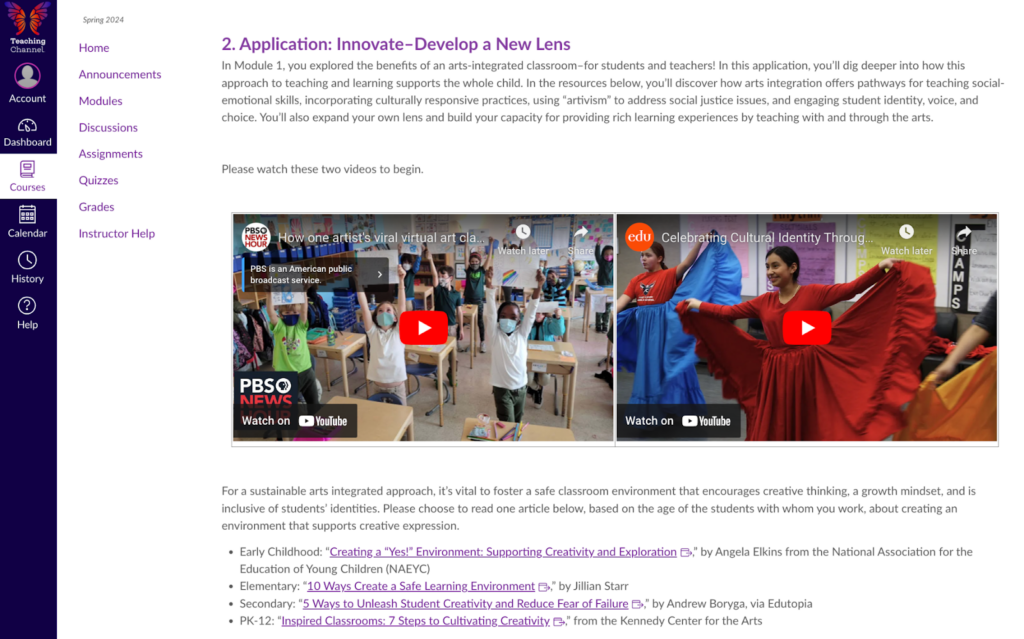
- Move through each module in sequential order
- Engage with the multi-media content including embedded videos, linked articles (and course text, if applicable)
- Compose your responses in a Google or Word document
Submit Work
Upload your completed responses to the online environment
- Use the rubrics provided to ensure your work meets (or exceeds) target expectations before submitting
- Upload a pdf or Word file and submit for grading
- If work does not meet target expectations, you’ll be given the opportunity to revise (up until the final session due date)
View Grades
Review the personalized feedback provided by your course evaluator
- View the submission details for each module, including grade and personalized feedback from your course evaluator
- Ensure you are on the right track before submitting additional module work
- Resubmit your work, if requested, by your course evaluator
Need More Information? Check Out These Topics.
Don’t see what you’re looking for? Chat with an advisor or visit our FAQ section.
